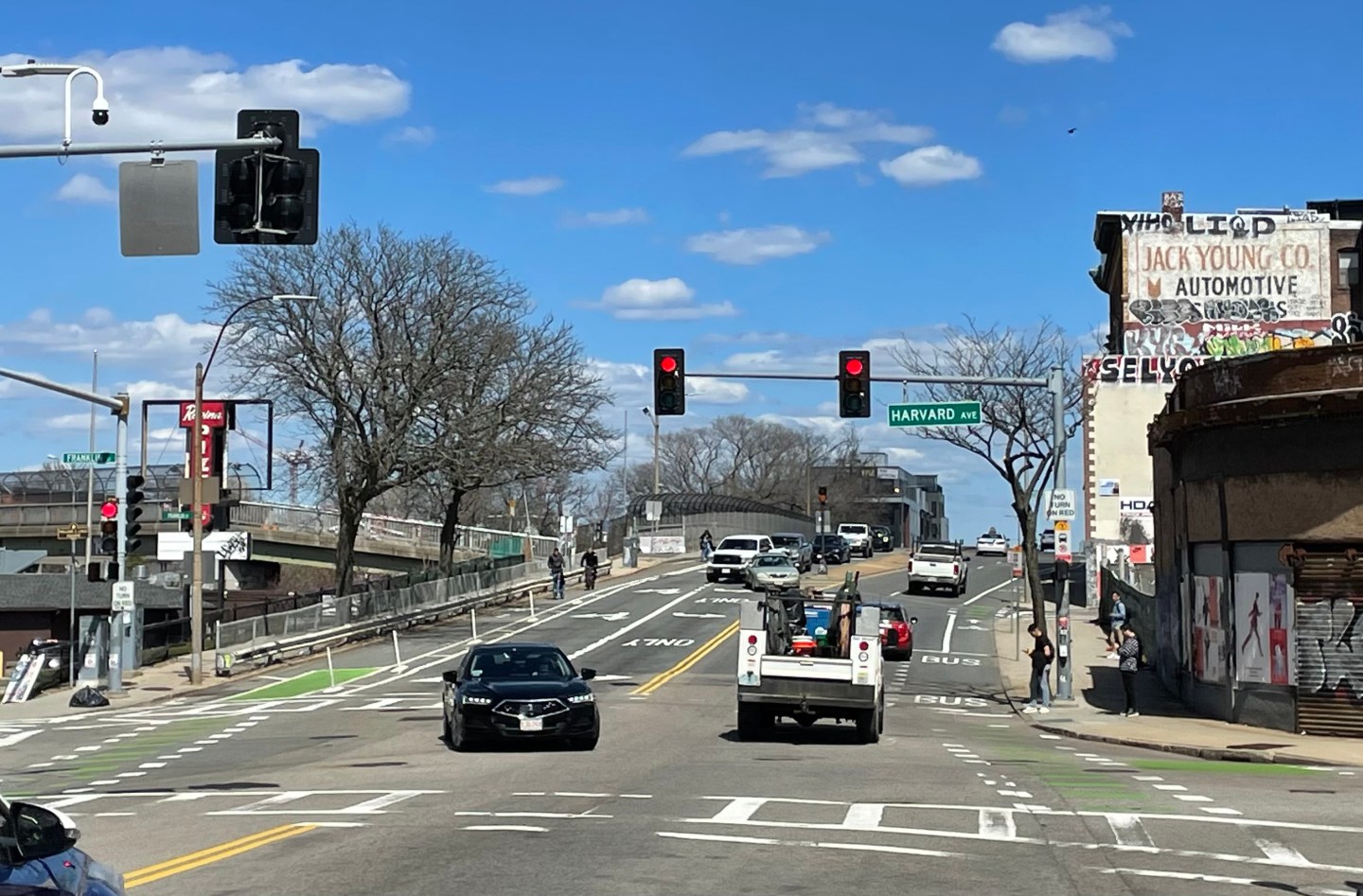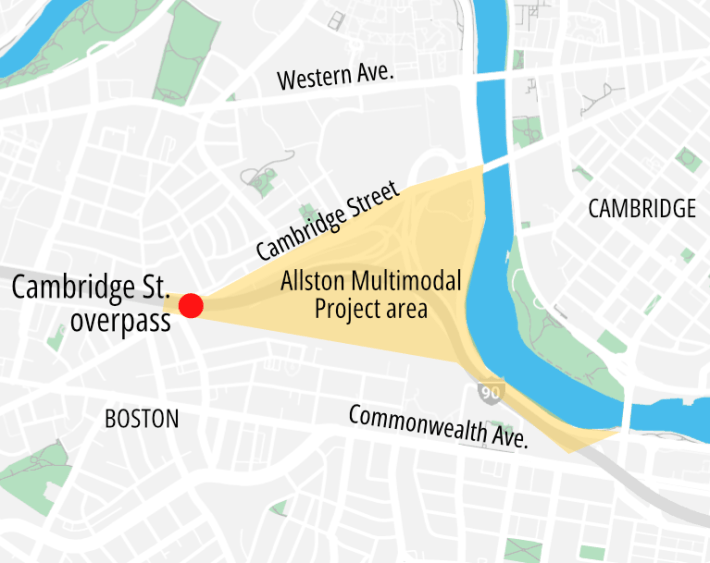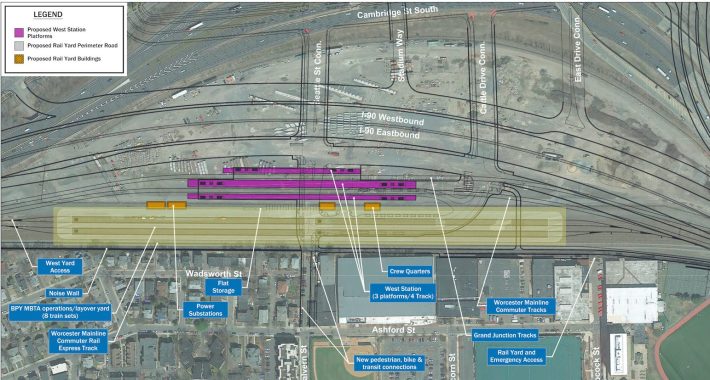Advocates Win Concessions As State Starts Value-Engineering Allston I-90 Megaproject
“In the past month, MassDOT has agreed to two significant changes in its
Allston I-90 megaproject in response to pressures from sustainable transportation advocates.
Although MassDOT won a $335 million federal grant to help pay for the project earlier this year, that grant was $165 million less than MassDOT had hoped to receive from Washington.
That means that MassDOT still needs to fill in a formidable funding gap before it can start construction. Value-engineering the project to trim less-than-necessary expenses will be one way to fill the nine-figure shortfall.
Cambridge Street bridge will be replaced, not rehabbed
The first significant change concerns the Cambridge Street overpass over I-90, which is one of the few connections that Allston residents have over the Turnpike.
“The current bridge (pictured at the top of this story) features narrow sidewalks that are to steep to meet the requirements of the Americans with Disabilities Act (ADA), but the roadway itself is absurdly wide, with four lanes of traffic for motor vehicles, even though Cambridge Street is only two lanes wide immediately to the bridge's south.
Until recently, MassDOT had been considering two possibilities for that overpass: a rehabilitation that would have re-built the deck of the existing bridge structure with some limited upgrades to its sidewalks and crosswalks, or a full-scale replacement with a new bridge that meets ADA standards and MassDOT's complete streets guidelines.
Many Allston neighbors and members of the project's advisory task force strongly favored the latter option….”
Train layover has 'gotta go'
“An even more significant change to the Allston Multimodal Project concerns a huge multi-block train yard that had been proposed for the heart of the project, next to the new West Station.
Since the early stages of the Allston Multimodal Project's design, the MBTA had insisted on building a four-track layover facility where up to eight commuter rail trains could be stored during off-peak hours.
Although it was ostensibly transit infrastructure, many transit advocates panned the idea of building what was effectively a massive
parking lot for trains in the heart of a new transit-oriented neighborhood.
A 2020 MassDOT plan for West Station, highlighting (in yellow) the proposed 4-track MBTA layover yard that would have occupied several city blocks immediately south of the new station.
In that same March 20
letter to MassDOT mentioned above, advocates also asked the administration to "remove the MBTA layup yard from the project," calling it "unnecessary, inconsistent with the
MBTA’s Regional Rail vision, (and) incompatible with economic development at Beacon Park….”
Additional commitments
“
In their March 20 letter, a number of those advocates asked for additional commitments and scope changes for the project, including:
- "Right-sizing the excessively wide streets in the current design, minimizing two-stage pedestrian crossings, and adding dedicated bike and bus lanes on key east-west and north-south streets." As we've reported previously, MassDOT's current design calls for the construction of numerous 4- and 5-lane streets connecting to the Massachusetts Turnpike – a roadway design that inflates infrastructure costs while also inflicting significantly higher risks of severe injury and death.
- "Serious review of all options for the number and width of vehicular lanes on both I-90 and Soldiers Field Road." The complexities of re-building 12 highway lanes along the space-constrained and environmentally sensitive banks of the Charles River is a major driver of the current project's eye-watering price tag. Reducing the number of lanes wouldn't just save on the amount of asphalt that taxpayers need to buy; it would also considerably simplify the project's construction logistics. A number of advocates have also noted the incongruities between the Commonwealth's climate goals, which will require a massive reduction in pollution from major highways like I-90, and MassDOT's desire to spend $2 billion to re-build a 1960s-era expressway.
- "Ensure that no element of the project included in the Reconnecting Communities Grant application is removed or diminished." They make up a relatively small component of the project's $2 billion pricetag, but advocate also want to make sure that MassDOT doesn't cut traffic-reducing components of the project. In fact, advocates are asking MassDOT to fast-track several non-highway elements of the project as "early action" items that can mitigate construction-related noise and traffic snarls once the rest of the project begins.”
https://mass.streetsblog.org/2024/0...project?utm_source=dlvr.it&utm_medium=bluesky



